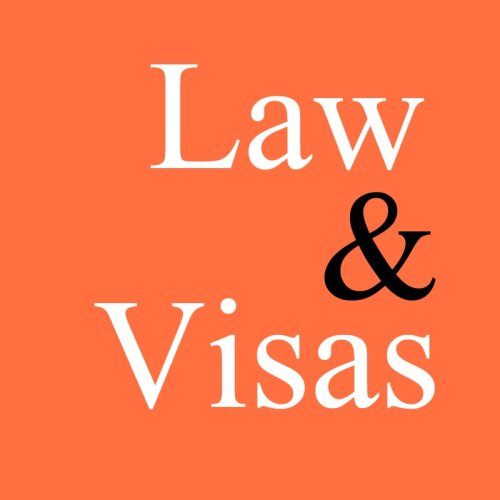Best Citizenship Lawyers in Nigeria
Share your needs with us, get contacted by law firms.
Free. Takes 2 min.
Or refine your search by selecting a city:
List of the best lawyers in Nigeria
Legal guides written by Adeola Oyinlade & Co:
- Procedure and Requirements for Work Permit and Visas in Nigeria
- The Step-By-Step Procedure of How to Apply for Microfinance Bank License Online in Nigeria
- How to Ensure the Smooth Recognition and Enforcement of Foreign Judgments in Nigeria
About Citizenship Law in Nigeria
Citizenship in Nigeria is outlined under Chapter III of the Nigerian Constitution. A person can acquire Nigerian citizenship by birth, descent, registration, or naturalization. Citizenship by birth is automatically granted to individuals born in Nigeria before October 1, 1960, or to those whose parents or grandparents are of Nigerian descent. Alternatively, children born outside Nigeria to Nigerian parents may also qualify for citizenship. Furthermore, naturalization and registration are options for foreigners or spouses wishing to become Nigerian citizens under certain legal requirements.
Why You May Need a Lawyer
Navigating the legal landscape around citizenship can be complex. Individuals may require legal assistance in several scenarios, such as applying for citizenship by registration or naturalization, challenging the denial of citizenship applications, interpreting dual nationality regulations, or resolving issues of automatic citizenship acquisition by birth. Lawyers can provide crucial support, ensuring all legal avenues are explored, and supporting individuals through the intricate application processes.
Local Laws Overview
The Nigerian Constitution provides several pivotal aspects of citizenship law, including:
- Section 25 provides for citizenship by birth, covering those born before and after independence, with the stipulation of Nigerian descent.
- Section 26 details citizenship by registration, primarily for foreign women married to Nigerian men.
- Section 27 outlines the process for citizenship by naturalization, requiring applicants to satisfy conditions such as residence duration and good character.
- Section 28 highlights the restrictions against dual citizenship for individuals who obtain citizenship via other means than birth.
Frequently Asked Questions
1. Who qualifies for citizenship by birth in Nigeria?
Individuals born in Nigeria before October 1, 1960, or those whose parents or grandparents are Nigerian citizens qualify for citizenship by birth.
2. Can a foreigner become a Nigerian citizen?
Yes, foreigners can obtain Nigerian citizenship through registration or naturalization, provided they meet specific legal criteria, such as residence requirements and demonstrating good character.
3. What is the process for naturalization in Nigeria?
Naturalization requires an application, evidence of residency for at least 15 years, intention to reside in Nigeria permanently, and proof of good character among other requirements.
4. Can a Nigerian hold dual citizenship?
Yes, Nigerians by birth can hold dual citizenship. However, this privilege is not extended to those who acquire citizenship by means other than birth.
5. Is citizenship by marriage available to men and women?
Only foreign women married to Nigerian men can acquire citizenship by registration. There is no equivalent provision for foreign men married to Nigerian women.
6. How can citizenship be revoked in Nigeria?
Citizenship by registration or naturalization can be revoked if obtained through fraud, mistakes, or disloyalty to Nigeria.
7. What documents are needed for a citizenship application?
Common documents include birth certificates, proof of Nigerian descent, passports, residency evidence, and sometimes letters of character reference from reputable persons.
8. Can children under 18 apply for citizenship separately?
No, typically children under 18 can only acquire citizenship in connection with their parents' application or status.
9. Are there any fees involved in the citizenship application process?
Yes, there are government-imposed fees for processing citizenship applications. These can vary based on the type of application.
10. What happens if a citizenship application is denied?
Applicants can seek legal counsel to appeal the decision or address any identified deficiencies in their application.
Additional Resources
Prospective applicants or those seeking advice may find the following resources useful:
- Nigerian Immigration Service: For application forms and guidelines.
- Federal Ministry of Interior: Oversees naturalization and registration applications.
- Legal Aid Council of Nigeria: Offers free legal services for eligible individuals.
- Local law firms specializing in citizenship and immigration law.
Next Steps
For individuals needing legal help in citizenship matters, consider taking the following steps:
- Consult with a reputable lawyer who specializes in citizenship law for professional guidance.
- Gather all necessary documents and evidence needed for your specific application process.
- Contact the relevant governmental bodies to confirm requirements and processes.
- Prepare to attend any interviews or legal proceedings as advised by your legal counsel.
Taking these proactive steps can significantly improve your chances of a successful citizenship application or resolution of citizenship-related issues.
Lawzana helps you find the best lawyers and law firms in Nigeria through a curated and pre-screened list of qualified legal professionals. Our platform offers rankings and detailed profiles of attorneys and law firms, allowing you to compare based on practice areas, including Citizenship, experience, and client feedback.
Each profile includes a description of the firm's areas of practice, client reviews, team members and partners, year of establishment, spoken languages, office locations, contact information, social media presence, and any published articles or resources. Most firms on our platform speak English and are experienced in both local and international legal matters.
Get a quote from top-rated law firms in Nigeria — quickly, securely, and without unnecessary hassle.
Disclaimer:
The information provided on this page is for general informational purposes only and does not constitute legal advice. While we strive to ensure the accuracy and relevance of the content, legal information may change over time, and interpretations of the law can vary. You should always consult with a qualified legal professional for advice specific to your situation.
We disclaim all liability for actions taken or not taken based on the content of this page. If you believe any information is incorrect or outdated, please contact us, and we will review and update it where appropriate.
Browse citizenship law firms by city in Nigeria
Refine your search by selecting a city.

















